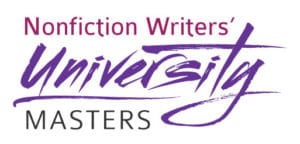Discouraging, isn’t it?
You write a few blog posts and friends shower you with praises. You think, Maybe I’ve got what it takes to score a publishing deal.
But then the music screeches to a halt.
You receive a scathing critique from an agent, an editor, or an author.
And the dream fades.
Unfortunately, I’ve seen it over and over.
Writers ask me for feedback. I believe they want real input, and while I try to be encouraging, I also feel I do them no favors by telling them anything other than the truth.
But when I fill the page with red marks, their faces fall.
I know they hoped I would say, “How has a major publishing house not found you yet?”
But they hadn’t really been looking for help. They’d been hoped to be discovered.
You might have a boatload of talent—enough to tell a compelling story in a fresh way. But if you think that means you don’t need to refine your skills, you’re wrong.
I’ve written and published more nearly 200 books, including 21 New York Times bestsellers, yet I still need fresh eyes on my work. And I’ve become a ferocious self-editor.
Writing is a craft.
That means you must learn the skills and build your writing muscles.
Regardless of how talented you are or think you are, writing takes work.
Many talented athletes never make the pros because they believed raw talent alone would carry them.
The same can happen with writers. But it doesn’t have to happen with you. Learn the skills and hone your talent.
3 Ways to Hone Your Talent
1. Read, Read, Read
Writers are readers. Good writers are good readers. Great writers are great readers.
You should read at least 200 titles in your genre before trying to write in it. Patterns will emerge to inform you what works and what doesn’t.
And read everything you can find about the craft of writing itself. I’ve been doing that for nearly 50 years.
2. Write, Write, Write
Dreamers talk about writing. Writers write.
You learn and grow by doing it.
Write and try to sell short stuff before tackling a book. Starting your writing career with a book would be like enrolling in grad school when you should be in elementary. Learn the business. Learn to work with an editor. Get a quarter-million clichés out of your system.
3. Welcome Honest Feedback
The way to shave years off your learning curve is to seek input from someone who knows.
But prepare yourself. Your ego could take a bruising.
Yes—the red pen hurts. During my early years in the newspaper and magazine business, my editors tore apart my work.
But it made me the writer (and editor) I am today. Without that scrutiny, I’d likely be largely ignored.
Every writer needs editing, yes, even those with household names. I’ve been fortunate enough to meet many of them, and not one claims to write final copy on their first drafts.
So develop a thick skin and take advantage of every opportunity to learn and grow. Assume there’s always room for improvement.
And decide to become a lifelong learner. I’m still learning and trying to sharpen my skills, and I’ve been at this for half a century.
What’s your favorite or most-effective way to refine your raw nonfiction writing talent? Tell me in a comment below. (And if you found this post helpful, please share it with other writers!)
About the Author
 Jerry B. Jenkins is a 21-Time New York Times bestselling novelist (including The Left Behind series) and biographer (Hank Aaron, Walter Payton, Billy Graham, and many others) with sales of over 70 million copies. He shares his little-known writing secrets with aspiring authors at JerryJenkins.com through in-depth guides (like this one on how to publish a book).
Jerry B. Jenkins is a 21-Time New York Times bestselling novelist (including The Left Behind series) and biographer (Hank Aaron, Walter Payton, Billy Graham, and many others) with sales of over 70 million copies. He shares his little-known writing secrets with aspiring authors at JerryJenkins.com through in-depth guides (like this one on how to publish a book).
 Would you like to learn more about becoming a nonfiction author? If you aren’t sure how to get started or to move forward on your nonfiction writing journey, check out the Nonfiction Writers’ University MASTERS program. Learn all the steps to becoming a successful—and profitable—author. Discover how (finally) to write consistently, boldly, enthusiastically, and productively. Develop the mindsets, strategies, habits of the world’s most successful writers. Make your difference today. Click here to learn more. (And if you aren’t ready for the Nonfiction Writers’ University Masters program, explore the Nonfiction Writers’ University. You can enjoy a 30-day trial membership for only $1.)
Would you like to learn more about becoming a nonfiction author? If you aren’t sure how to get started or to move forward on your nonfiction writing journey, check out the Nonfiction Writers’ University MASTERS program. Learn all the steps to becoming a successful—and profitable—author. Discover how (finally) to write consistently, boldly, enthusiastically, and productively. Develop the mindsets, strategies, habits of the world’s most successful writers. Make your difference today. Click here to learn more. (And if you aren’t ready for the Nonfiction Writers’ University Masters program, explore the Nonfiction Writers’ University. You can enjoy a 30-day trial membership for only $1.)Picture courtesy of ammentorp.
